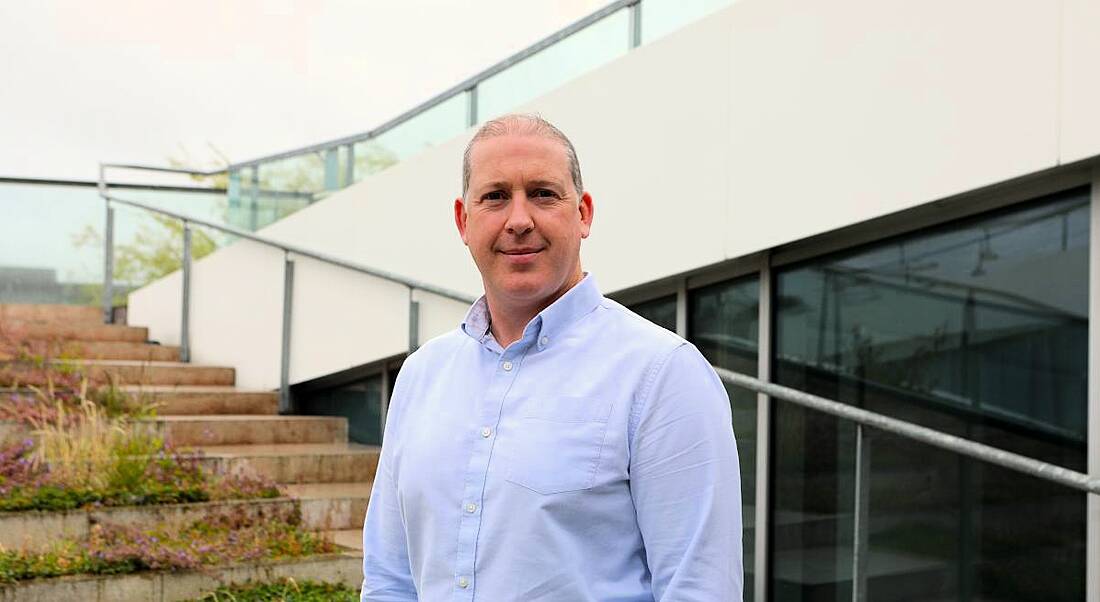Aurora Telecom’s Barry O’Brien discusses his role as a network engineer and what it’s like to work in the telecoms industry.
Barry O’Brien believes there are three aspects of his personality that make him suited to engineering: a logical way of thinking, an interest in solving problems and a general curiosity in the subject.
O’Brien is a colocation and network engineer at Aurora Telecom, a backhaul dark fibre service provider. According to O’Brien, he has always naturally gravitated toward engineering topics, from enjoying subjects like math and science to frequently watching TV programmes about how things are put together.
“For as long as I can remember, I have been curious about how things were constructed and operated.”
What brought you to your current job?
Due to my natural inclination towards engineering, it might have appeared planned, but the path to my current job was not a straightforward one. I worked in construction engineering on a wide variety of projects up until the economic crash. With the onset of the crash and the extensive number of job losses in the sector, I was amongst those impacted. But as the saying goes, when one door closes, another opens.
I received a recommendation from a friend about a number of jobs vacancies in telecoms and shortly after, I commenced a role in telecoms civil design and planning. I then held a number of roles within telecoms working on fibre and wireless projects.
In 2015, I joined Aurora Telecom as a network planner. This coincided with the consistent expansion of the network, creating the need for an increased number of colocation facilities. Naturally, the requirements to maintain these new sites increased and with my past experience and education, I was a good fit to manage the operation, maintenance and upgrades of these facilities.
‘There are so many avenues you can go down in engineering … You just need to find what suits you’
What were the biggest surprises or challenges you encountered on your career path in engineering and how did you deal with them?
The economic crash was probably the greatest challenge I and many of my contemporaries in the industry have faced. Due to the downturn in construction and widespread layoffs, I was faced with a number of difficult choices including whether to retrain, remain in Ireland or follow friends and colleagues and try to obtain work abroad.
I chose to stay in Ireland and around the same time, one of my friends pointed me in the direction of a role in telecoms and I have been working in the industry ever since. Maintaining a strong professional network and building good relationships has always helped me in my career and in this instance, it helped guide me in the right direction again.
Was there any one person who was particularly influential as your career developed?
I can’t say there was just one person as I believe that has really been a number of key people who have given me the necessary nudge at different stages of my journey. This includes teachers during my school days, where I was guided towards science, construction and engineering.
During challenging periods, I have always relied on friends and family for advice on career choices, such as moving into the telecoms industry. While in my current and previous roles, I have always benefitted from the support and advice of numerous colleagues who I’ve worked with over the years.
What do you enjoy most about your job?
The people and the variety/diversity of work. I enjoy working closely with the Aurora Telecom team, our contractors and our customers on projects operating cutting-edge technologies, critical infrastructure and the roll-out of large-scale network expansion projects.
While working in Aurora Telecom, I have always been encouraged and supported to review and improve our processes and identify solutions for our customers. A recent example of this is a project we’re delivering in response to the increased number of extreme storms experienced in Ireland over the last number of years. Aurora Telecom was one of the only telecoms companies not to experience a customer-affecting outage during these events, but with the expected increase of extreme weather events, we are looking to increase our network reliability even further. After successfully presenting a business case, I received approval to project manage the roll-out of onsite standby power generation across all of our colocation sites.
In addition to this, I get to work across a wide variety of topics such as fibre and civil planning, colocation facility construction and maintenance, regulatory compliance, tender generation, contractor management and development of IT systems including CRM (customer relationship management) and disaster recovery. This variety keeps the role interesting and ensures I am continuously learning new skills.
What can people expect from career progression in the engineering industry?
It is a constantly evolving field. The industry is always looking to develop new and improved products and services, and as a result there are always new and exciting roles being developed. Due to this change, there are always opportunities to progress into more senior roles or to diversify into other disciplines.
What advice would you give to those considering a career in engineering, or just starting out in one?
There are so many avenues you can go down in engineering. I would encourage people to talk to as many people as possible in the industry and where possible, try to get work experience to help identify your preferred career path.
It’s important that you understand that not all roles may suit you, so you should complete thorough research to ensure that you have a genuine interest in a potential placement. Some people may enjoy working in a cutting-edge R&D lab, whereas others may enjoy the challenge of working on major civil engineering projects in far-flung places. You just need to find what suits you.
10 things you need to know direct to your inbox every weekday. Sign up for the Daily Brief, Silicon Republic’s digest of essential sci-tech news.




